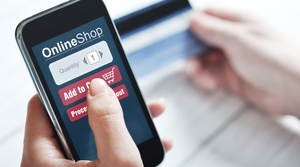Astronauts Using Fitbit for COVID-19 Risk Mitigation Is Out of This World
NASA is offering Fitbit devices to 1,000 mission-critical employees, including 150 astronauts, to mitigate the risk of spreading infectious disease among astronaut flight crews in the immediate preflight period.
February 10, 2021

NASA is offering a Fitbit device and Fitbit's Ready for Work solution to help employees performing mission-critical work make more informed decisions about going to work onsite during the COVID-19 pandemic.
As part of the pilot program, 1,000 NASA employees performing mission-critical work at six locations across the United States will receive Fitbit Charge 4 devices and access to Fitbit’s Ready for Work Daily Check-In experience. This includes 150 astronauts and NASA employees critical to future space missions who will use the Fitbit solution as part of the NASA Health Stabilization Program, which is aimed at mitigating the risk of occurrence of infectious disease among astronaut flight crews in the immediate preflight period.The in-app daily check-in feature allows users to log their symptoms and temperature, track key health metrics, and receive summarized COVID-19 guidance based on CDC guidelines. The goal of the Fitbit pilot program is to help NASA and its employees prevent the spread of COVID-19 while also supporting the overall health and well-being of NASA employees. Employees will also have access to one year of Fitbit Premium and one-on-one Fitbit health coaching services.
The program is based on the premise that resting heart rate data and other key health indicators from wearables have the potential to identify flu-like illness such as COVID-19 before symptoms emerge. The Fitbit Ready for Work Daily Check-In feature allows users to view key health metrics (resting heart rate, heart rate variability and breathing rate) tracked by their Fitbit device alongside self-reported symptoms, temperature logging, and COVID-19 exposure. Based on a user’s daily check-in, the solution will provide NASA employees with daily guidance to help them decide whether to go to work or stay home.

“The pandemic has underscored the critical role that Fitbit can play in providing much-needed support to help people sleep better, eat better, move more and take control of their health and wellness, as well as the potential to identify illness from specific health metrics, which is especially important now during the COVID-19 crisis,” said Amy McDonough, managing director and general manager of Fitbit Health Solutions at Google. “We are proud to work with NASA to support its employees and give them access to Fitbit products and services to help them better understand and manage their health and well-being during the pandemic.”
NASA will evaluate the pilot program and consider expanding to a larger employee population based on the impact the program has on helping to prevent the spread of COVID-19 and in supporting the health and wellness of NASA employees.
Fitbit, which Google acquired in January, is also continuing its work to further validate a Fitbit COVID-19 early detection algorithm, including a prospective study with Northwell Health’s Feinstein Institutes for Medical Research.
Fitbit has been highly active in the fight against COVID-19. In May the company launched a COVID-19 study aimed at helping the San Francisco, CA-based company build an algorithm that detects COVID-19 before symptoms start. In June, the company received an emergency use authorization from FDA for a low-cost emergency ventilator to help address patients’ needs during the pandemic.
About the Author(s)
You May Also Like




